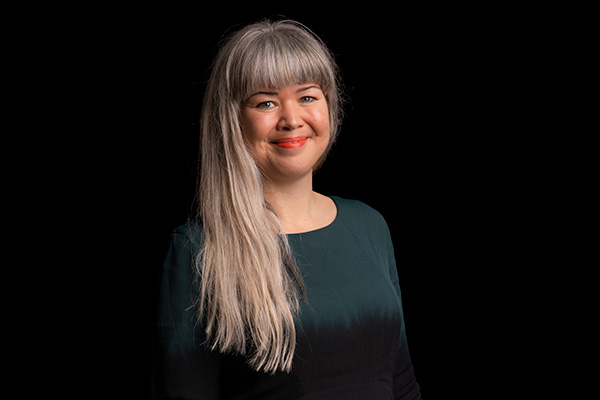Nanna Thorsteinsson Schneidermann
Research leader

Project title
Gendered Island Futures: generational perspectives on motherhood and change in the Faroe Islands
What is your project about?
Why take motherhood as a lens to study social change in the Faroe Islands? Well, because the idea of what drives history forward here, as in other small island communities, almost always focuses on men's perspectives without reflecting on the gendered dimensions of island life. Men negotiate with the colonial powers, set out to sea, fish, exchange, and bring innovative ideas back home. "But the women, who sat at home and waited for their husbands and their sons, only gained worries from it," wrote the celebrated Faroese writer Jørgen-Frantz Jacobsen in the middle of the last century. What happens to our idea about drivers of change and continuity in island societies, if we look at it from the perspective of "those who sat at home"? Women's position as mothers is in upheaval in Faroese society, in matters of migration, the labor market, abortion, fertility and sexuality. This represents a special chance for us to better understand dynamics in the relationship between gender, kinship and island life over time.
How did you become interested in your particular field of research?
My mother was Faroese, and in that way my whole life has been shaped by Faroese practices and expectations of motherhood – and transformations in what it means to give life and create connections within and from an island community. Even though I mostly grew up in Denmark. After years of doing research on motherhood, gender, partnerships and digital media in South Africa and Uganda, now it is to bring my international experiences and perspectives back home.
What are the scientific challenges and perspectives in your project?
The big challenge in this project is to develop approaches to studying motherhood that embrace everyday life, concerns and hopes for the future and how they relate to island life - over time. The idea is to create a "generational approach," based on anthropological methods, which allow us to follow linked lives through generations, and to understand motherhood from different gendered perspectives. The method is also generative of new perspectives on gender and motherhood in the Faroe Islands through the project's social media, local partnerships and a podcast series. By bringing together a group of anthropologists with a Faroese background, it is my aim to create a research environment which connects Denmark and the Faroe Islands. In a growing field of research on gender and islandness, we contribute new knowledge on how kinship and connections between generations play a role in these intersections.
What is your estimate of the impact, which your project may have to society in the long term?
Motherhood and women's role in creating social change is under transformation in Faroese society. More women pursue representation in the Lagtinget, and family structures and parental roles are changing. In Denmark too, we are increasingly aware of how reproduction figures in the history and future of the unity of the realm, for example in cases of forced contraception in Greenland and in the Faroese issue of abortion. In Danish debates, the other nations in the realm are easily reduced to the exotic “Other” to Danes. These are reasons that research based on lived experience and everyday life is so necessary, to foster understanding and nuances, and to counter symbolic politics and superficial judgements. In this way, this research works towards greater inclusivity and gender equality in the Faroe Islands and the Danish realm.
Which impact do you expect the Sapere Aude programme will have on your career as a researcher?
This project is to me what the album "Folklore" was for Taylor Swift's career. It could seem like a huge risk to shift my field of studies to Faroe Islands, far from the African continent where I usually work. But this is a unique opportunity to find my voice and make a contribution. Both as a Faroese person and as a scholar within a wider, international field. This project feels way different than anything else I've worked on, there’s a depth and clarity to it, but also vulnerability, since my own lived experience is also part of it. I am so proud that the Danish Research Council has recognized the strength of both the depth, clarity and vulnerability of the project.
Background and personal life
The best thing about being an anthropologist is making connections with all kinds of people across the globe; rocking to new dope beats with a brotherhood of Ugandan hip-hoppers; sending gingerbread cookies for Thanksgiving to my adopted American family; doing weekly writing workshops on zoom with South African friends. Discovering the world by being connected to all these very different everyday lives is what makes my world go round. The starting point for my adventures is my childhood home in Hjortshøj where I live with the cats Paul McCartney and John Lennon. Also, I am, obviously, a huge Taylor Swift fan.
View all research leaders here
Research institution
Aarhus University
Research field
Anthropology
City of your current residence
Aarhus
High school
Aarhus Cathedral School
